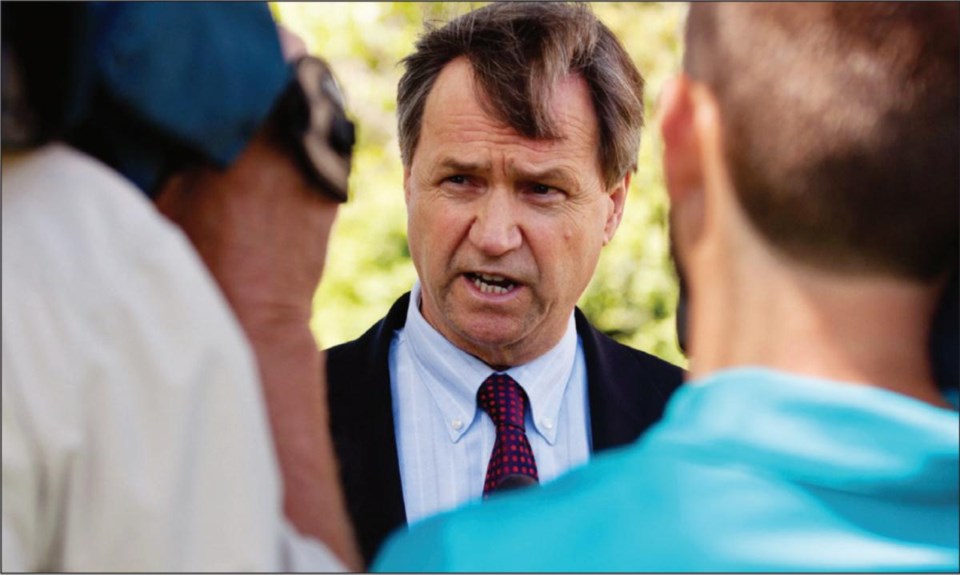Would-be politicians are rarely bold and brave during an election campaign, and many of the tougher issues — such as climate change, electoral reform and the soaring costs of health care — are rarely touched, members of a political panel organized by the University of Victoria’s political science department, agreed Tuesday.
The politicians and political commentators — George Abbott, former B.C. Liberal cabinet minister; Adriane Carr, a deputy leader of the Green Party of Canada; Dennis Pilon, a political scientist at York University; and Shane Gunster, of Simon Fraser University’s school of communication — looked at the topics that are not being discussed during the campaign.
“There’s a fundamental fear of being bold and brave during an election,” said Carr, pointing out that topics such as global warming and greenhouse-gas emissions are getting short shrift from candidates.
“And they are definitely making promises they might not be able to keep,” she said.
Read more election coverage HERE
Abbott, B.C. health minister from 2005 to 2009, pointed to the likely ballooning costs of health care as baby boomers age.
British Columbians always want more money put into health care, he pointed out. “The expectations are high in B.C., and one of the things politicians never want to do during an election campaign is throw cold water on those expectations,” he said.
For Pilon, a discussion missing in the election campaign is the economic decline faced by working-class British Columbians.
When he was growing up in the 1960s, six children were supported by his father working blue-collar jobs — a scenario not possible in today’s economy, he said.
“People have to talk about how the status quo isn’t working for the poor and working class of this province, who are struggling to get by. The middle class is slipping as well,” Pilon said.
Instead of a secure economy, there is a “trinket” economy, where people can buy cheap clothes and televisions, he said.
A fundamental change would mean an increase in consumer prices, he said, “but it would discourage a lot of wasteful replacement and fashion-driven consumption.”
The often-made link between resource extraction and jobs worried Gunster, who called the “effortless union” disturbing.
“Green jobs is a huge industry in California, where more people are working in the solar industry than there are actors,” he said.
“The discourse here is that the only way to create jobs is by digging it up and selling it. I think that’s a huge problem.”
There was general agreement on the need for electoral reform.
Abbott offered a glimpse into the workings of government as he described the lack of power of backbenchers.
Everyone who enters politics does it in an effort to make the province a better place, he said.
“But, unless you become a minister, you never get involved in a policy discussion,” he said. “That needs to change.”



